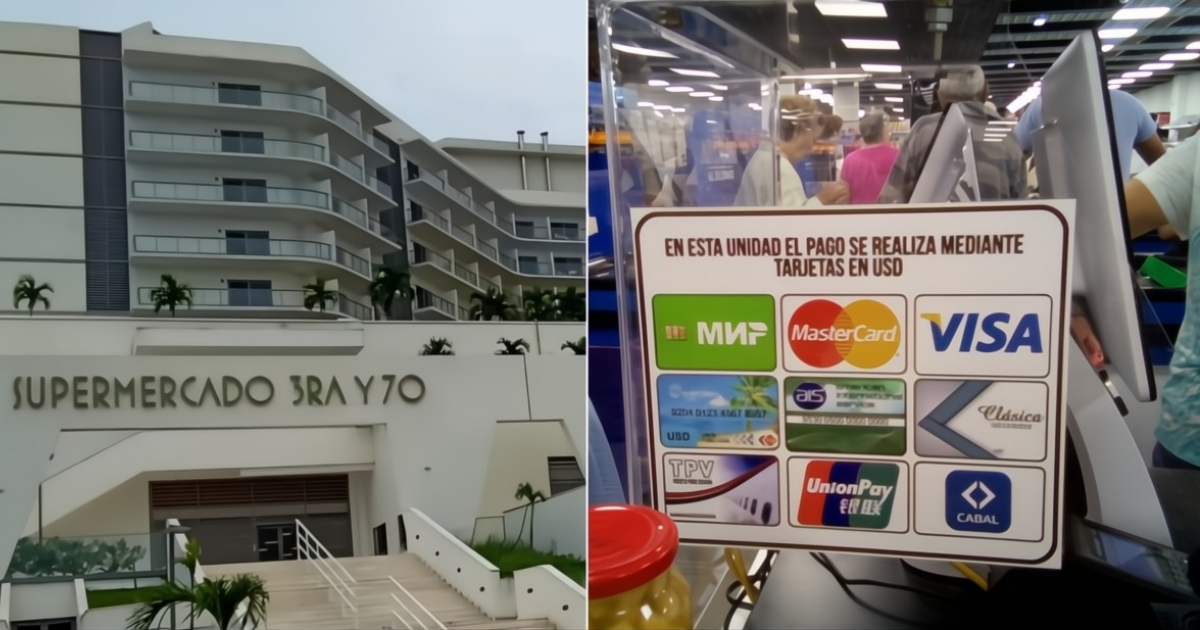The opening of a new supermarket in Havana that exclusively takes cash in dollars or cards linked to foreign currency accounts has sparked outrage among locals. Criticism is particularly focused on the fact that the change is returned in candy. Located at 3rd and 70th in Playa municipality, this new store stands opposite the old market that operates in Freely Convertible Currency (MLC) and is largely empty. Although filled with goods, the new supermarket's limited payment options restrict access for most of the population.
Payment in Dollars, Change in Candy
A particularly contentious issue is that when paying in cash, change is given in bills. However, if the change is less than a dollar, customers are forced to accept candy or snacks, as coins of this denomination do not circulate in Cuba. This practice of giving candy as change has reminded Cubans of past eras when the regime implemented exchange methods widely seen as institutionalized theft.
Since the 1960s, when the original Cuban peso was replaced, to the recent transition from the CUC to MLC, countless individuals have lost their savings with each monetary transformation instigated by the government.
Memories of Abusive Exchange Systems
In past decades, similar cases have occurred. Cuba had tourist currencies with denominations akin to the dollar, forced exchanges from dollars to CUC, and the conversion of foreign currency accounts to CUC and then to Cuban pesos. Another memorable practice was the "Casa del Oro" during the 1990s, where Cubans traded their jewelry for the infamous "chavitos," usable only in select state stores.
Furthermore, the foreign currency certificates used in the 1980s and the mandatory conversion of dollars to other currencies have been examples of the government's authoritarian and arbitrary economic management. Each of these episodes left thousands of Cubans financially affected, fueling public discontent and a deep erosion of trust in the Central Bank of Cuba and the government.
An Exclusive Supermarket Amidst Crisis
The supermarket at 3rd and 70th offers a wide range of products, from food and hygiene items to appliances. It is part of the Hotel Gran Muthu Habana, managed by MGM Muthu Hotels and the Gaviota group, under military control by GAESA. Such exclusive markets reflect the dollarization of the Cuban economy, prioritizing foreign currency while leaving most of the population to cope with a devalued Cuban peso.
This new supermarket symbolizes an unattainable luxury for the majority and further highlights the inequalities that define daily life in Cuba. Meanwhile, the practice of giving change in candy serves as a stark reminder of the disregard for the real needs of the populace.
FAQs on Havana’s Dollar-Only Supermarket
Why does the supermarket give change in candy?
The supermarket offers candy as change because coins of less than a dollar denomination do not circulate in Cuba.
What payment methods are accepted at the supermarket?
The supermarket accepts cash in dollars and cards linked to accounts in foreign currency.
How does this supermarket reflect the Cuban economy?
This market highlights the dollarization of Cuba's economy, favoring foreign currency transactions and marginalizing those reliant on the devalued Cuban peso.
